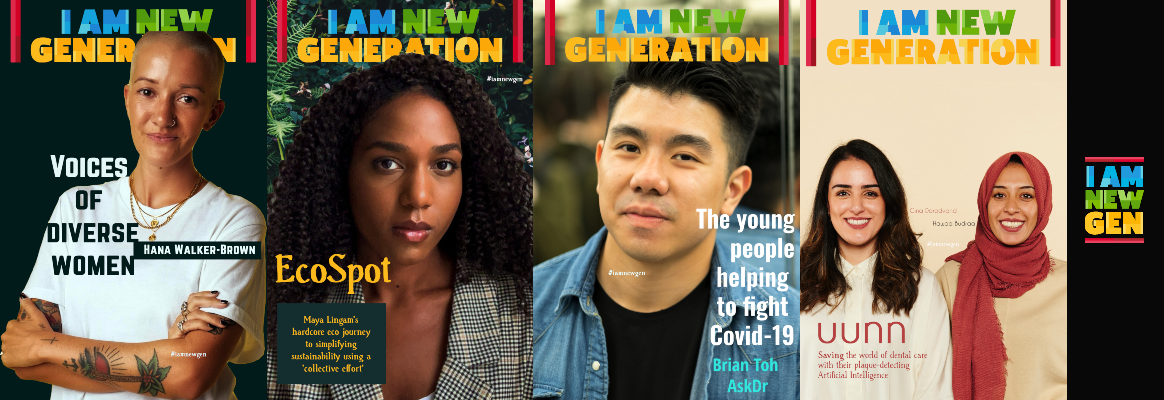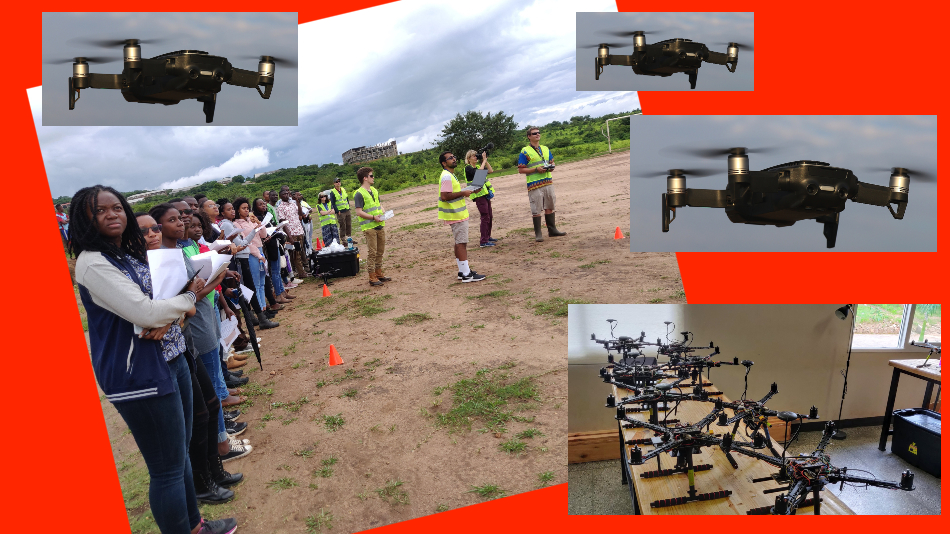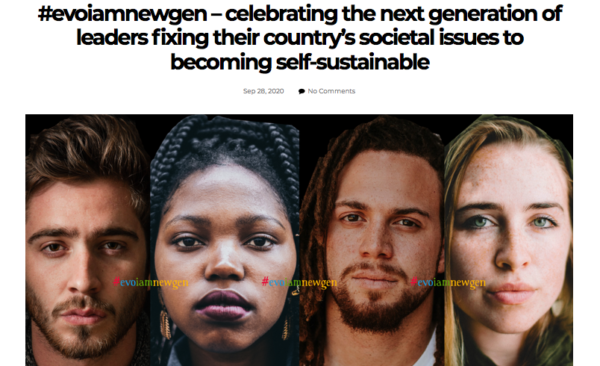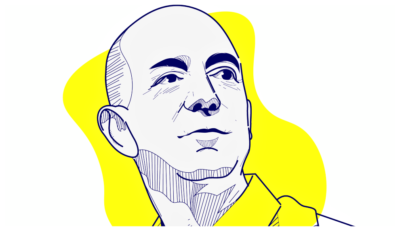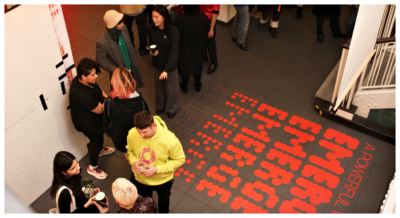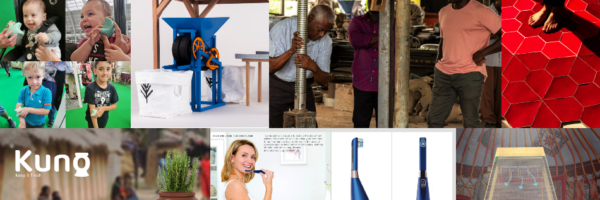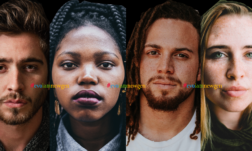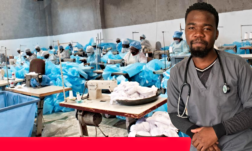Drones often get bad press, with stories about privacy and security implications dominating conversations about their use. However, their role as valuable tools for humanitarian, medical, and agricultural purposes cannot be ignored.
In developing countries, for example, drones are helping to deliver vital supplies to those who need them.
In Malawi, the machines have become a common presence since the authorities teamed up with UNICEF in 2017 to establish a humanitarian drone-testing corridor.
Following on from this experiment, the African Drone and Data Academy (ADDA) opened in January 2020 in Malawi’s capital Lilongwe.
For the project, UNICEF partnered with Virginia Tech, which developed the course.
Kevin Kochersberger, associate professor at Virginia Tech and leader of the ADDA project, said that as a UNICEF-funded program, the focus had always been to expand public health options, including the use of drones.
“But we also recognise the many opportunities for students trained in drone technology (agriculture, natural resources, infrastructure) that are beneficial to society, and so we like to consider the ADDA as a leader in preparing students for careers in this new and rapidly growing field,” he explained.
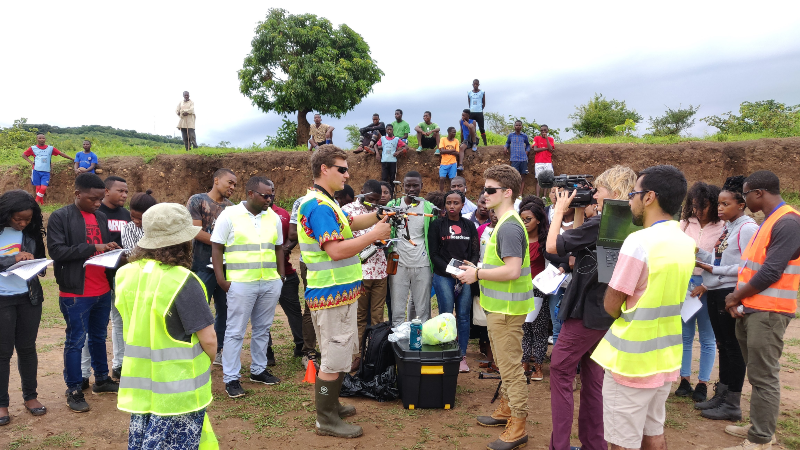
Students who take the course become well-equipped to work with the data products available from drones.
“They also know how to conduct safe flight operations that meet governing airspace rules and regulations.
“Safety is a big part of the curriculum, and so students leave with the skills and knowledge of conducting safe flight operations – beginning with mission planning and ending with the post-flight briefing,” he said.
Funding from UNICEF’s partners provide free tuition to the first group of 26 students from across Africa.
“Fortunately, we were able to complete our first in-person cohort by 18 March, which was literally days before the Malawi air service was discontinued [due to the Covid-19 pandemic],” Kochersberger added.
Congolese national Theodore Regeza Kamunga, 30, was among the first ADDA graduates.
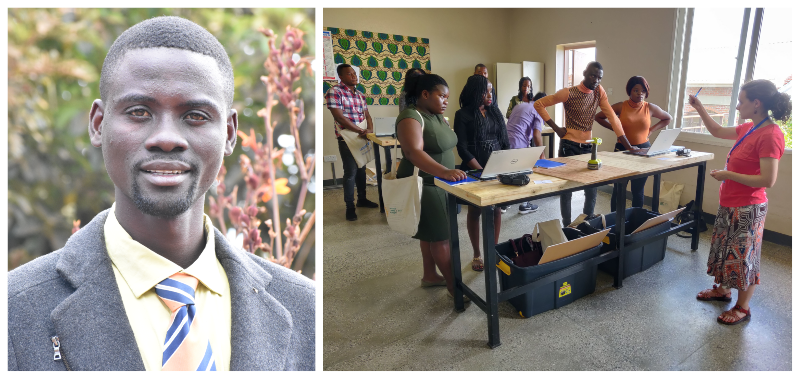
He lives in Malawi and has a keen interest in the way technology can be used to improve lives. When he heard about the academy, he was determined to be involved.
“I was very fortunate to get on the course as the competition was tough,” he said.
Along with extensive outdoor piloting classes, he attended lectures on aerodynamics and physics, and learned how to repair and modify the machines.
“We would take drones out to fly and check if there were any problems,” he said.
“If we discovered anything, we would return to the lab to try and fix them.
“We had lessons focused on business and entrepreneurship, and were taught about the air regulations and safety measures that pilots need to understand.”
Drone design was also a significant part of the course, he said: “We used SolidWorks (a computer-aided design modelling programme) to see we could create our own designs for use with 3D printing.”
Kamunga appreciated the course’s variety, although he admitted it was intense.
“If we hadn’t finished the project were working on, we would continue sometimes until 10pm.”
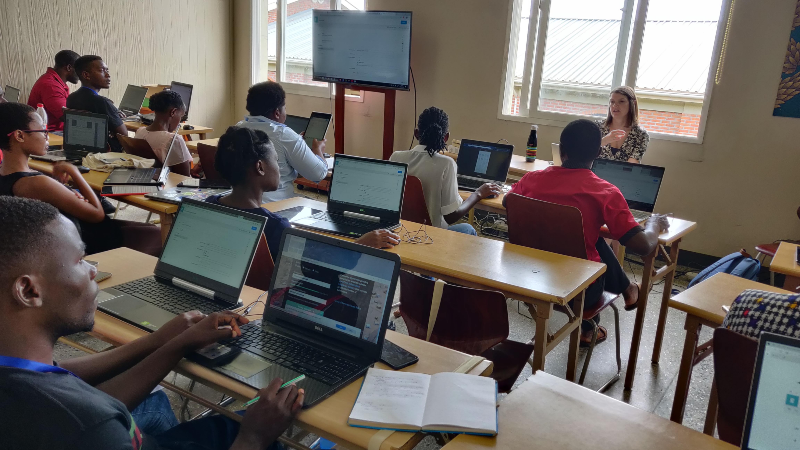
Still, he describes his studies as a highly positive experience: “It was amazing as I learned so much more than just how to fly drones.”
Since graduating, Kamunga has been keeping himself busy in Malawi.
He works as an independent consultant at medical drone logistics company, Swoop Aero, and has also recently set up Nyasa Aerial and Data Solutions, a joint venture with friends.
One of his future ambitions is to return to Congo. “I’m doing more training that will enable me to work there. I first want to work as a pilot because I am now qualified … but I’d also like to work for a company that has good promotion opportunities – and a good salary!”
Drones are continuing to rise to the ever-demanding challenges of assisting patients suffering from diseases such as Ebola, Malaria and now, of course, Covid-19.
On 23 September, US retailer Walmart branched out into this area with a drone delivery program, which will drop off Covid-19 tests to homes near selected branches.
Kamunga is certainly encouraged by the increasing potential of medical drones.
“In the past, people used vehicles or trains to transport goods and medical supplies from rural areas to cities,” he said, “but it takes time. Maybe a whole day.
“Using drones shortens response times… and you could possibly make the delivery in minutes.”
He pointed to the difficult and dangerous situation facing Ebola patients who live in isolated areas.
“In the Congo, it is very challenging for them to travel to a hospital. But if you use drones, you can tell people not to travel because the [drone carrying supplies] is meeting them in their communities instead,” he said.
It’s clear Kamunga is a born problem solver – and he’s eager to make the most out of his newly gained drone expertise.
“I would definitely prefer to stay in Africa because we have problems that need solving. So my skills can benefit my continent.”
Written By: Tola Onanuga – a freelance journalist and editor covering a range of topics including technology and race issues – @Tola_o
Images Copyright – ADDA / Theodore Regeza Kamunga / Unsplash / edited by I Am New Generation Magazine
More Stories
Jeff Bezos WhatsApp Hack: Are we protective enough about our privacy and data?
How EcoSpot aims to simplify sustainability using a collective effort
These Arts workers moved online during the pandemic and they are ‘thriving’
